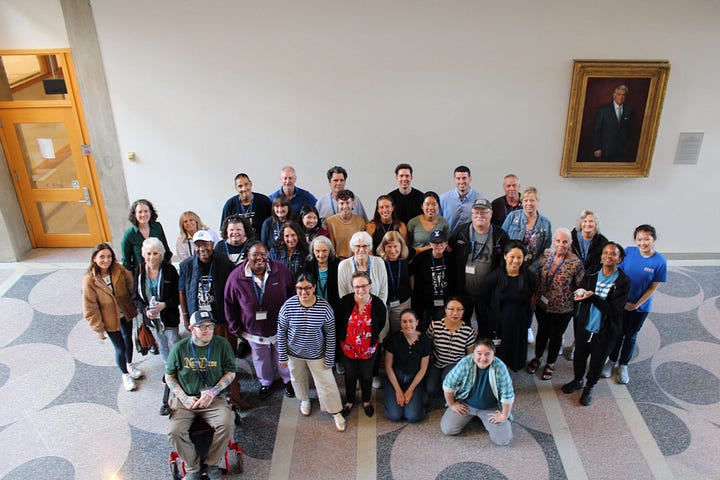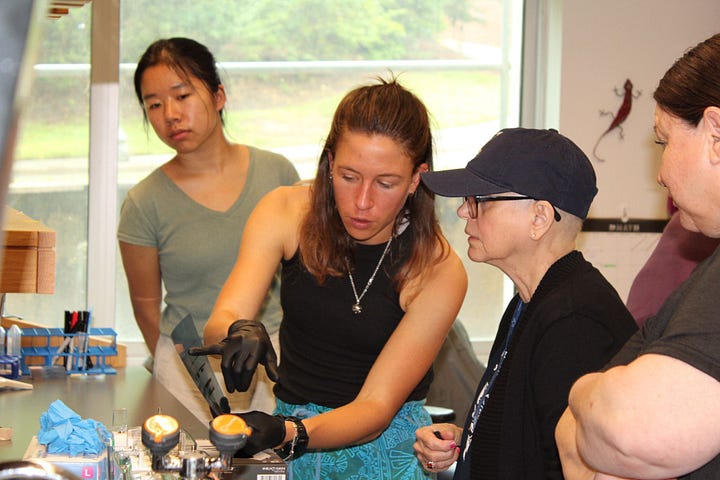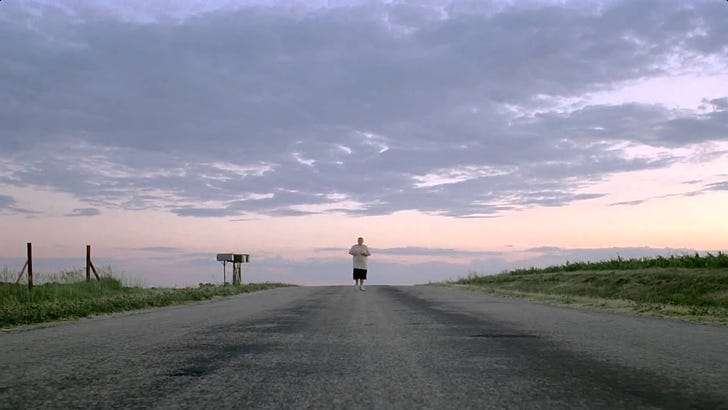On a recent call with two cancer survivors, one shared that she had been invited to speak at an industry event. The organizers wanted to use her experience to place a real “face” on the multi-billion-dollar company’s work. When she inquired about payment and international travel arrangements, she was told that there was no financial support. The *honor* of sharing her story with a large audience was enough. She politely declined the offer.
Any survivor with a platform will tell you that this is common. An invitation to share an experience without compensation. Some agree to go, but increasingly more are opting out. Many survivors have a desire to share their stories, but these magnanimous feelings do not pay the bills. The result is a selection bias where highly resourced survivor stories are highlighted while those who struggle are overlooked.
(Sidenote: A study by the American Cancer Society found that half of survivors carry over $5,000 in medical debt related to their cancer treatment in spite of insurance coverage at the time of diagnosis. This doesn’t include lost revenue from time off work and out of pocket expenses including co-pays and parking fees. Travel to speak at an international conference convened by the pharma company that manufactured the drugs that saved your life but put you into debt? I don’t think so.)
In my role as director of a cancer survivorship program, I would occasionally receive emails from a well-intentioned member of our communications team asking for a survivor to be featured in a marketing campaign or interviewed by the media. The email went something like this: Hey Dr. Wentworth! Hope you are doing well. We need a patient to come to the medical center at 2PM next Tuesday for a photoshoot and video interview. Do you have any ideas?
A number of patients came to mind but the ones who were available with such short notice in the middle of the day? That list was much shorter and much more privileged.
Are you buying what we're selling?
“Sooner or later the serious runner goes through a special, very personal experience that is unknown to most people.”
Part of my job was also talking to grateful patients who were interested in giving money to our program. Most were lovely people who wanted to help others. Many gave generously of their time, volunteering in our clinic and the cancer center. Once, however, I was asked to meet with a woman who had written a book about her cancer treatment experience. She was a member of a prominent family, and our philanthropy team thought she might be interested in donating money to the survivorship program.
We met for lunch at the hospital cafeteria. Her passion for helping others was immediately evident. As we chatted and picked at our salads, she shared her cancer experience with me. Some of her story was familiar. She quit her part time job to focus on her treatment and relied on her faith, supportive family and friends. She also hired a live-in nanny to care for her children and employed a part time chef to prepare healthy meals. She acknowledged the privilege of her experience but felt it was really her positive attitude that had helped her through treatment. This is message she wanted to share with others.
I declined her offer to share her “lessons learned” with our survivors. I wasn’t sure her experience would resonate with our patients, and she had no training in leading support groups. I was also concerned that her motivation was more about book marketing and self-promotion than service to others.
Did I make the right decision? Is there a “correct” way to share your survivor story? I think so.
A few weeks ago, I was invited to speak at a conference on small cell lung cancer. One of the presenters, Dr. Mary Oliver, developed the first mouse model to study small cell lung cancer. In addition, her lab discovered that what we long believed about the origins of small cell lung cancer was all wrong. Dr. Oliver’s lab members were now working on a new understanding of how it develops and documenting new targets for treatment and prevention along the way. It was a beautiful story of science.
As part of the conference, small cell lung cancer survivors and their caregivers were invited to tour the Oliver lab. The grad students met the patients and heard about the impact of their work. Tears were shed and I heard from several scientists and patients that the lab visit was the highlight of the conference.


As the chaos of the world lurches forward, it is important to be reminded of what we are fighting for. For those of us in research and patient care to hear your stories of how our science and knowledge helped you. If you, like me, find it easier to focus on what’s going wrong, it’s easy to lose sight of why it matters.
Maybe for you, it is on an international stage. Maybe it’s a book or volunteering or advocacy work. But maybe it’s also finding doctors and scientists in your community who helped or are helping you. Maybe that is the most important message of all.








Deeply resonated with this powerful note, Dr Stacy. Often patient voices are celebrated but not respected, especially when companies benefit without offering fair compensation or support.
This callout is timely, necessary, and courageous.
And thank you for sharing what a better way of standing up for dignity and equity looks like.
I would be curious to know how other childhood cancer survivors would experience sharing their story. Mine makes me feel complex emotions and is unique to my environment, however, maybe this resonates with others.
I was 4 when I was first diagnosed and 8 when I was taken off treatment, which makes cancer my earliest childhood memory. As I grew into young adulthood, I began sharing with more people about my past and background, and cancer became an "object" in my story.
I learned and experienced how it made others feel, how it made me feel sharing, and the types of attention it gave me.
To be honest, I didn't like the attention. But then, as a survivor, I felt obligated to share my story more powerfully or profoundly because it's the voice that was given to me. I felt like I needed a platform to share my story, but it became another cyclical pattern, doing it out of obligation, to guilt, to freedom, and back to obligation.
For anyone who has experienced a chronic and fatal illness, there is pressure to make oneself stand out more in a crowd(audition for The Voice, America's Ninja Warrior, Survivor...) or blend in and hide one's medical background. But I think that there is a magical place where I've learned that my uniqueness and giftedness exist with/without cancer. And my cancer story doesn't make me unique or make me more special than an average person.
There was probably a time in my life, admittedly, where I felt like the best thing I could do was "sell my story," not so much anymore.
I really connected with this post and will be spending more time thinking about it. Thank you!